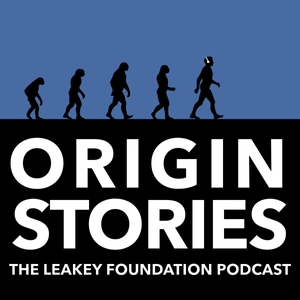
62 | Dianne Newman and the visceral and intentional sides of science
08/19/24 • 40 min
Dianne Newman – a molecular microbiologist at CalTech – is a professor both in Biology and Geology. In this episode, she encourages young scientists to pursue questions to which they have a visceral connection, rather than following popular trends. In its search for fundamental truths guided by our inner biases and preferences, Dianne likens scientific curiosity to artistic expression. She emphasizes our control over how much we dwell on the difficult aspects of our research, helping us to find satisfaction in creatively working around whatever obstacles we meet. Dianne also reflects on the unpredictable nature of research, and stresses how a problem that somebody else gives you can very rapidly become yours if you take it upon yourself to become its creative driver.
This episode was supported by Research Theory (researchtheory.org). For more information about Night Science, visit https://www.biomedcentral.com/collections/night-science .
Dianne Newman – a molecular microbiologist at CalTech – is a professor both in Biology and Geology. In this episode, she encourages young scientists to pursue questions to which they have a visceral connection, rather than following popular trends. In its search for fundamental truths guided by our inner biases and preferences, Dianne likens scientific curiosity to artistic expression. She emphasizes our control over how much we dwell on the difficult aspects of our research, helping us to find satisfaction in creatively working around whatever obstacles we meet. Dianne also reflects on the unpredictable nature of research, and stresses how a problem that somebody else gives you can very rapidly become yours if you take it upon yourself to become its creative driver.
This episode was supported by Research Theory (researchtheory.org). For more information about Night Science, visit https://www.biomedcentral.com/collections/night-science .
Previous Episode

61 | Tina Seelig on what to do with a really bad idea
Tina Seelig is Executive Director of the Knight-Hennessy-Scholars at Stanford University. She is widely known for teaching creativity courses and workshops with an entrepreneurial focus. In this episode, Tina emphasizes the importance of living in the problem space longer, taking time to challenge assumptions and reframe questions before rushing to solutions. We discuss how deliberately generating bad ideas can lead to innovative solutions, as they allow for bigger conceptual leaps and often contain the seeds of brilliant ideas. Treating ideas as less precious allows for a continuous flow of creativity. But ideas aren’t cheap – they are free but incredibly valuable, like oxygen.
This episode was supported by Research Theory (researchtheory.org). For more information about Night Science, visit https://www.biomedcentral.com/collections/night-science .
Next Episode

63 | Manu Prakash and how the discovery changes you
Manu Prakash is a professor of bioengineering at Stanford University, asking biological questions with insights from physics. His most widely known contribution is the FoldScope, a $1-microscope made from paper and a lens – 2 million copies of this have been distributed to would-be scientists around the world. In this episode, Manu emphasizes how science is a sense of wonder and a personal journey with no set roads. To get to new and deep questions, Manu feels he needs to “embed” himself in the world he's studying, e.g., by spending weeks on research vessels on the open sea when he’s interested in deep-sea biology. In his view, the most important consequence of a discovery is not how it impacts the world, but how it changes the scientist making the discovery.
This episode was supported by Research Theory (researchtheory.org). For more information about Night Science, visit https://www.biomedcentral.com/collections/night-science .
If you like this episode you’ll love
Episode Comments
Generate a badge
Get a badge for your website that links back to this episode
<a href="https://goodpods.com/podcasts/night-science-247947/62-dianne-newman-and-the-visceral-and-intentional-sides-of-science-70243574"> <img src="https://storage.googleapis.com/goodpods-images-bucket/badges/generic-badge-1.svg" alt="listen to 62 | dianne newman and the visceral and intentional sides of science on goodpods" style="width: 225px" /> </a>
Copy




